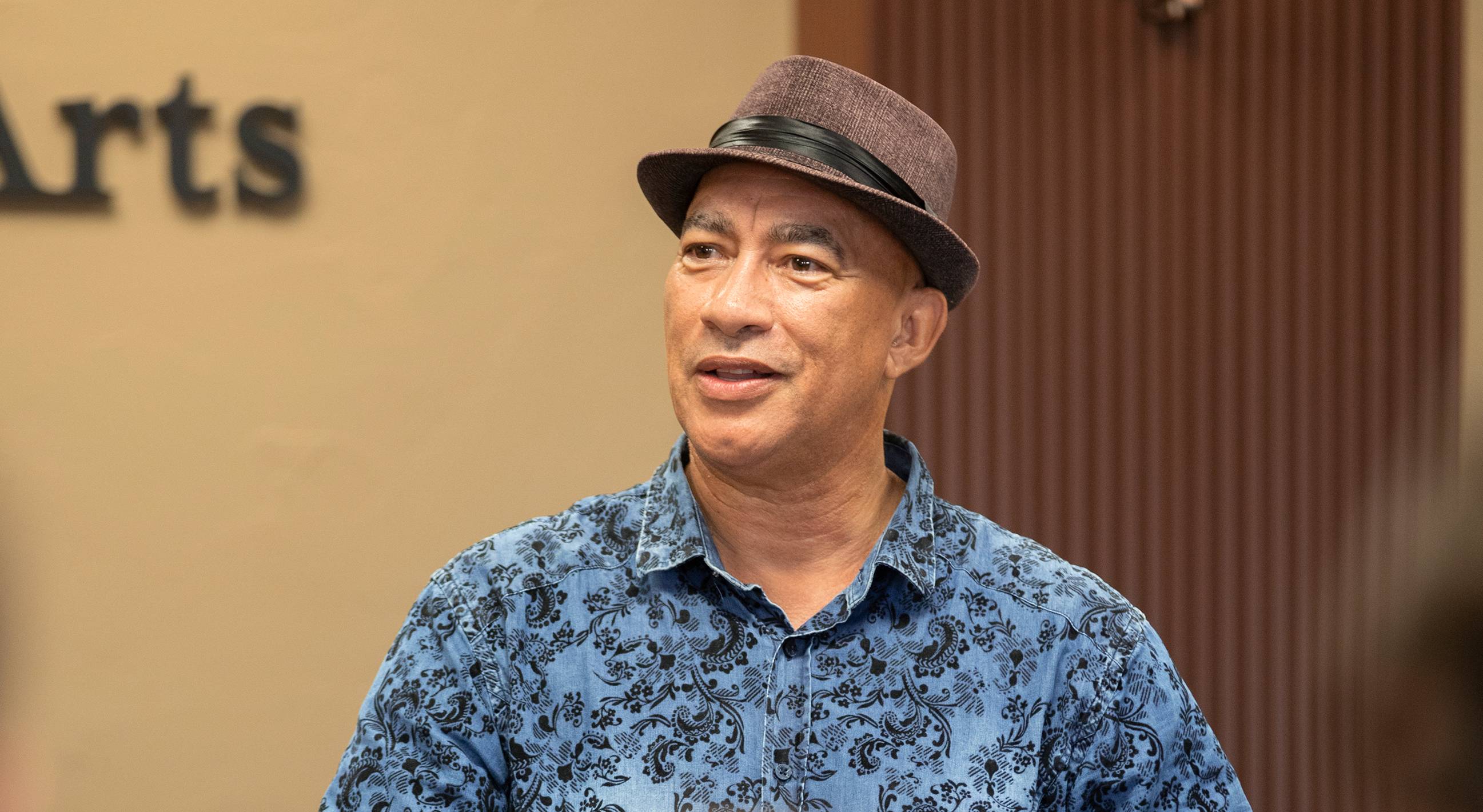
A man of his words
By Dan R. Goddard
Cyrus Cassells says that winning a Guggenheim has been satisfying, heartening, and quite emotional.
Multicultural and international in spirit, Cyrus Cassells, a self-described “intrepid African-American ambassador working freely and fearlessly in the world,” is the award-winning author of seven books of poetry reflecting his concerns with issues of justice, war, conscience, and the healing of trauma, as well as the restorative power of romantic and erotic love.
An English professor at Texas State University for 21 years, Cassells was awarded a 2019 Guggenheim Fellowship in the Creative Arts for Poetry by the John Simon Memorial Foundation.
His first poetry collection, The Mud Actor, won the 1981 Poetry Series competition. Other titles include the 1994 Pulitzer Prize-nominated Soul Makes a Path Through Shouting, winner of the William Carlos William Award, and Beautiful Signor, winner of the 1997 Lambda Literary Award. His 2018 volume, The Gospel According to Wild Indigo, celebrating South Carolina’s Gullah culture, was nominated for the NAACP Image Award for Outstanding Literary Work-Poetry and the Texas Institute of Letters Helen C. Smith Award for the Best Book of Poetry.
Cassells says winning a Guggenheim has been satisfying, heartening, and quite emotional. “Current and former students have come forward to let me know my impact as a writer and teacher has been a strong and positive one,” Cassells says. His Guggenheim project, “Dragon Shining With All Values Known,” examines poles of faith and politics and includes a sequence, “The Going of the Inland Soul to Sea,” which reflects on the altruistic legacy of the 19th-century priest Father Damien of Molokai to the global HIV/AIDS pandemic.
“My project came out of a period when I lost four important people in my life in the course of six weeks,” Cassells says. “This bout of mourning was followed by several inspiring stays over the course of a year in the Benedictine Monastery of Christ in the Desert in Abiquiu, New Mexico.” The abbey’s prior — a friend for more than 20 years — gifted Cassells with a hermitage to do his meditation and writing. “My retreat changed my life. Since my desert stays, I’ve been more prolific as a writer than ever,” Cassells says. “I’m writing different kinds of poetry — some of it funny and conversational, some of it raw, experimental, and political, focusing on issues such as police brutality, stand your ground laws, family separation, child abuse, trafficking, and the history of lynching in this country.”
The title poem of his eighth book of poems is a giant abecedarian, or alphabetical, “dragon” that starts with the letter “C” and juxtaposes words to serve as an unusual critique and investigation into the country’s values. “Given the nature of the country’s political emergency and the grave, very real unraveling of our democracy, ‘politics’ cannot be avoided,” Cassells says. “It’s also our job, as writers, to bear witness to the key crises of our era, in whatever fashion we can.”
The Spanish poet and playwright Federico Garcia Lorca has been a major influence on Cassells’ work. “Lorca has been my hero poet since I was teenager,” Cassells says. “My all-time favorite teacher, Concepción Jorba, introduced me to his poetry and plays in high school.” On leave from Texas State, Cassells traveled to Granada to work on a memoir, I Found Lorca’s Cradle: A Memoir and Pilgrimage to Granada. Cassells is a noted translator of Catalan poetry, including Still Life with Children: Selected Poems of Francesc Parcerisas (Stephen F. Austin State University Press), which appeared in a bilingual Catalan/English edition in March 2019. In August, he traveled to Granada, on the anniversary of Lorca’s murder, to pay homage to the poet in readings and celebrations of his work.
“Travel enables my growth and continued learning, and is often the impetus for my poetry,” Cassells says. “I consider myself a citizen of the world, and my work is quite international in spirit. All in all, I’ve lived a relatively privileged life, but I’ve always been alert, through a keen sense of empathy and a genuine interest in history and humanity, to the suffering of others.” ✪